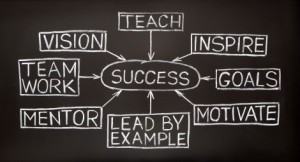I came upon a new blog entirely by accident. Normally I scan blogs and never view them again. But this one was different. It’s entitled Treasury Cafe and is written by David Waltz. He has many important things to say and his style is simple and straightforward, which I think all lessons should be.
His latest is on “A Life’s Worth of Leadership Lessons,” in which he uses quotes, some well-known, to introduce leadership lessons. Let me give you the essence of what he’s written about. Each of these is a great lesson for both coaches and coaching clients. And good lessons for life.
Know Thyself: Emotional intelligence is not a fad. Before we interact with others, before we expect people to follow us, ‘we need to understand ourselves with clarity.’ By not acknowledging our strengths, style and weaknesses, ‘we lose the ability to understand how we can impact our teams.’ While our colleagues remain fully aware of what we do well or not, if we don’t, we’ll just go about doing what we’ve always done, hoping it will work, and dismayed that it’s not.
Embrace Challenges: Hard choices are often the wisest choice. Rather spell out the truth, regardless of how difficult, than to disappoint later with an apology or restatement. “In school, if we choose easy we learn little, if we choose hard we learn a lot.” Robert Frost’s poem ‘The Road Not Taken’ is worth re-reading if this lesson doesn’t ring true.
Accomplish the Mission and Care for Your People: Apollo 13 was about the commander caring for his crew and accomplishing the mission, in that order. These two lessons are true for leadership, under any conditions. Just think how more engaged our workforce would be when they know that what they worked on was going to be seen through to the end and that they were cared for by colleagues and managers – indeed, a 360 degree of caring.
It’s Sergeants Who Win the Wars: It’s the truck drivers, the people who man the manufacturing plant, the engineers who design products and processes, and the accountants who balance the books each month that exemplify what it takes to make a business run. While we’d all like to believe that it’s the firm’s leaders (aka ‘us’) ‘whose actions and initiatives are what impact the company the most,’ that’s not really true. Without every worker, without people figuring out how to do their jobs better each day, we wouldn’t have a business. Do you recall the famous picture of General Eisenhower greeting the troops prior to their departure for Normandy shores? His message to them was clear: it’s the troops that matter, not the generals.
Keep it Simple: “The principle is pretty simple [said the head of a large city’s police department] to find who will make the best sergeant. You find out what top performers do. You train others to do what they do, and they become top performers, as well.” Despite a stunning amount of research and analysis on leadership and training, often the best work is a result of good people doing everyday tasks extremely well, making constant minute adjustments. “Sometimes it is wise to Keep it Simple. There is a lot less to distract, deter and derail your efforts.”
Explore New Territory and Embrace Change: Simply, doing the same thing over and over again (as Marshall Goldsmith writes, ‘what got you’re here won’t get you there’) is a path to obsolescence. To find untapped opportunities that excite you, ‘explore new territories to move your team.’ Being satisfied with the status quo leads to boredom, little room for growth, and passivity.
The author sums his blog by saying that we need to seek stories, helping us understand the paths others have taken, and seeing what they’ve learned from their lessons, which can be wisdom or affirmation of our direction.
